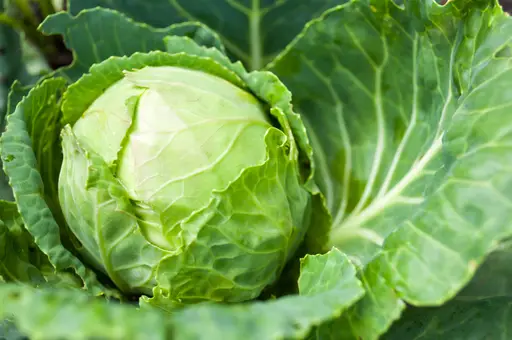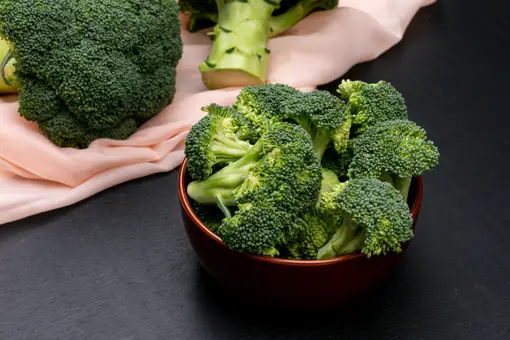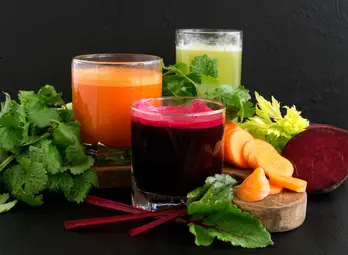10 Foods Rich In Glutathione

10 Foods Rich In Glutathione
Posted on 14th Apr, 2023
Glutathione is a naturally occurring antioxidant that is produced by the body's cells. It is composed of three amino acids - cysteine, glutamine, and glycine - and plays a crucial role in many physiological processes, including the detoxification of harmful substances, the maintenance of immune function, and the protection of cells against oxidative damage.
In addition to being produced by the body, glutathione can also be obtained through the diet or by taking supplements. However, it's important to note that the effectiveness of oral glutathione supplements is a matter of debate, as some studies suggest that it may not be well absorbed when taken orally. Here are 10 foods rich in Gluthathione:
Asparagus:

Asparagus is a great source of glutathione, with about 28 mg per 100 grams.
Avocado:

Avocado is another excellent source of glutathione, with about 27 mg per 100 grams.
Okra:

Okra is a vegetable that is rich in glutathione, with about 10 mg per 100 grams.
Garlic:

Garlic is a flavorful herb that is also a good source of glutathione, with about 5 mg per 100 grams.
Cabbage:

Cabbage is a cruciferous vegetable that contains about 1.8 mg of glutathione per 100 grams.
Spinach:

Spinach is a nutrient-dense leafy green vegetable that contains about 13 mg of glutathione per 100 grams.
Broccoli:

Broccoli is a cruciferous vegetable that is high in glutathione, with about 6 mg per 100 grams.
Walnuts:

Walnuts are a tasty nut that is also rich in glutathione, with about 2 mg per 100 grams.
Tomatoes:

Tomatoes are a versatile fruit that contain about 3 mg of glutathione per 100 grams.
Oranges:

Oranges are a juicy fruit that is also a good source of glutathione, with about 1 mg per 100 grams.
Dosage
The recommended dosage of glutathione can vary depending on the form of the supplement and the reason for taking it.
For general health and antioxidant support, typical oral dosages of glutathione range from 250 to 1000 milligrams per day. For individuals with specific health concerns, such as liver disease or respiratory issues, higher doses may be recommended by a healthcare professional.
It's important to note that the absorption of oral glutathione supplements can be low, as glutathione is broken down in the digestive system before it can be effectively utilized by the body. Alternative forms of glutathione supplementation, such as liposomal or intravenous, may be more effective in raising glutathione levels in the body. However, these forms of supplementation should only be done under the guidance of a healthcare professional.
Side Effects and Warnings
Glutathione is generally safe for most people when taken within the recommended dosage range. However, it may cause side effects in some individuals, including:
- Nausea
- Stomach upset
- Bloating
- Allergic reactions
It's important to consult a healthcare professional before taking glutathione supplements, especially if you have a history of liver or kidney disease or if you are pregnant or breastfeeding.
Additionally, some studies have suggested that long-term high-dose supplementation of glutathione may suppress the body's natural production of the antioxidant, leading to potential health risks. Therefore, it's recommended to follow the recommended dosage guidelines and avoid long-term high-dose supplementation without medical supervision.
Conclusion
Glutathione is a powerful antioxidant that has numerous health benefits, including protecting cells from oxidative damage, reducing inflammation, and supporting immune function. It is also commonly used for skin lightening and detoxification purposes.
When taken orally, glutathione is generally considered safe and well-tolerated, with few reported side effects. However, it may interact with certain medications, and high doses can cause nausea, diarrhea, and other gastrointestinal issues.
While some research suggests that oral glutathione supplements may increase glutathione levels in the body, more studies are needed to fully understand the effectiveness of this method of supplementation. Topical glutathione products have also shown promise for skin lightening, but more research is needed to determine their safety and efficacy.

Health articles from our experts

Guide To Eating for Anti-Aging Benefits and Youthful Skin

Guide To Eating for Acne-Free Skin

Revitalize your Dull Skin with Amla and ABC Juice

A Comprehensive Guide On How To Reduce Pigmentation

A Comprehensive Guide To Prevent Acne

Skincare Tips for Different Seasons - Adapting Your Routine to Weather Changes

CoQ10 for Skin: Benefits & Ways to Use It

5 Best Benefits Of Ashwagandha For Skin

10 Foods Rich In Glutathione

